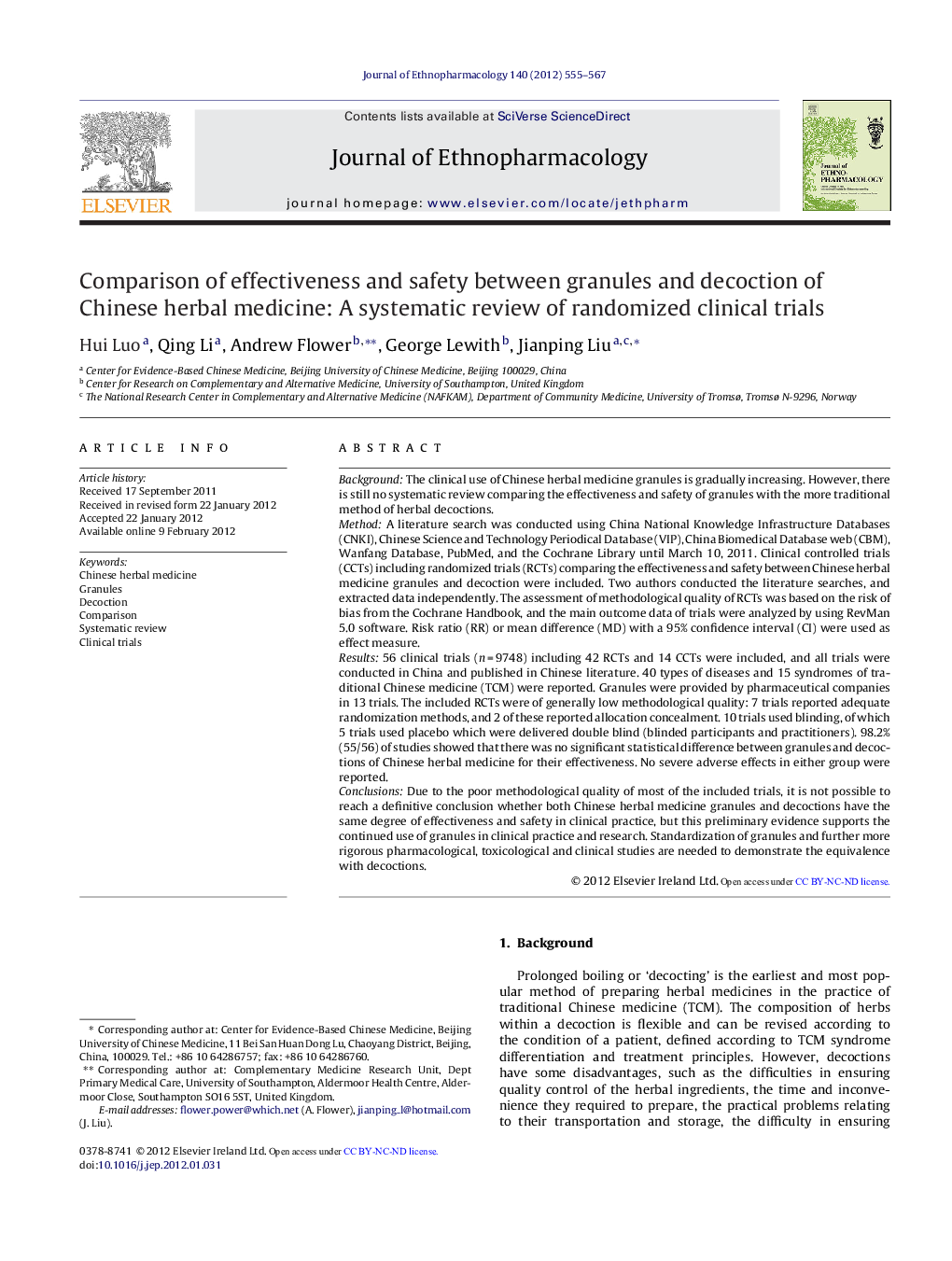| کد مقاله | کد نشریه | سال انتشار | مقاله انگلیسی | نسخه تمام متن |
|---|---|---|---|---|
| 2545632 | 1560407 | 2012 | 13 صفحه PDF | دانلود رایگان |

BackgroundThe clinical use of Chinese herbal medicine granules is gradually increasing. However, there is still no systematic review comparing the effectiveness and safety of granules with the more traditional method of herbal decoctions.MethodA literature search was conducted using China National Knowledge Infrastructure Databases (CNKI), Chinese Science and Technology Periodical Database (VIP), China Biomedical Database web (CBM), Wanfang Database, PubMed, and the Cochrane Library until March 10, 2011. Clinical controlled trials (CCTs) including randomized trials (RCTs) comparing the effectiveness and safety between Chinese herbal medicine granules and decoction were included. Two authors conducted the literature searches, and extracted data independently. The assessment of methodological quality of RCTs was based on the risk of bias from the Cochrane Handbook, and the main outcome data of trials were analyzed by using RevMan 5.0 software. Risk ratio (RR) or mean difference (MD) with a 95% confidence interval (CI) were used as effect measure.Results56 clinical trials (n = 9748) including 42 RCTs and 14 CCTs were included, and all trials were conducted in China and published in Chinese literature. 40 types of diseases and 15 syndromes of traditional Chinese medicine (TCM) were reported. Granules were provided by pharmaceutical companies in 13 trials. The included RCTs were of generally low methodological quality: 7 trials reported adequate randomization methods, and 2 of these reported allocation concealment. 10 trials used blinding, of which 5 trials used placebo which were delivered double blind (blinded participants and practitioners). 98.2% (55/56) of studies showed that there was no significant statistical difference between granules and decoctions of Chinese herbal medicine for their effectiveness. No severe adverse effects in either group were reported.ConclusionsDue to the poor methodological quality of most of the included trials, it is not possible to reach a definitive conclusion whether both Chinese herbal medicine granules and decoctions have the same degree of effectiveness and safety in clinical practice, but this preliminary evidence supports the continued use of granules in clinical practice and research. Standardization of granules and further more rigorous pharmacological, toxicological and clinical studies are needed to demonstrate the equivalence with decoctions.
Due to the poor methodological quality of most of the included trials, it is not possible reach a definitive conclusion whether both Chinese herbal medicine granules and decoctions have the same degree of effectiveness and safety in clinical practice. Standardization of granules and further pharmacological, toxicological and clinical studies are needed to demonstrate the equivalence with decoctions.Figure optionsDownload high-quality image (175 K)Download as PowerPoint slide
Journal: Journal of Ethnopharmacology - Volume 140, Issue 3, 10 April 2012, Pages 555–567